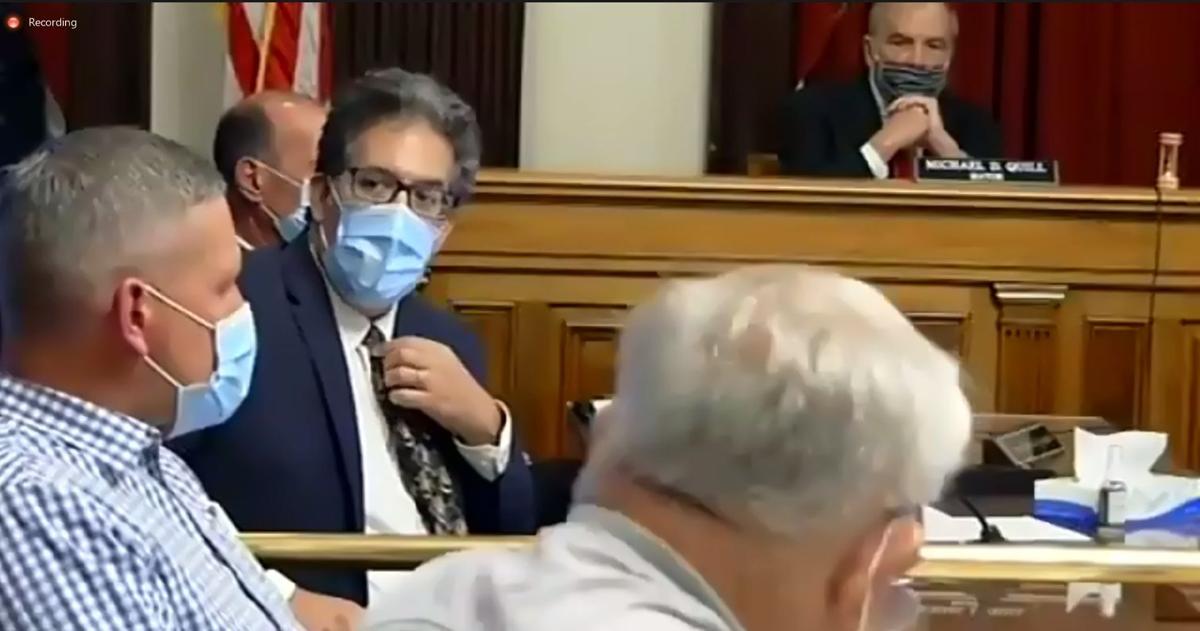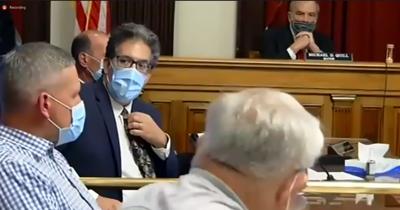The Auburn City Council and Owasco Town Board both approved new rules and regulations for the Owasco Lake Watershed at a special joint meeting聽Thursday night.
The new rules have been in the works for years. The meeting at Auburn Memorial City Hall was also shown on the videoconferencing service Zoom, so people could voice their opinions during the public-to-be-heard portion. Members of the public and officials voiced concerns of over-regulation and the potential cost of these rules for local farms.
The final draft of the rules, , will now be sent to the state Department of Health with a request to amend public health law as the rules suggest.
The Cayuga County Department of Planning and Economic Development began work with the Owasco Lake Watershed Management Council on these new directives in 2017, to update enforceable regulations for protecting the lake for the first time since 1984. The first draft of the updated edicts was released publicly in spring 2019. That May, members of the public gave input on that draft at meetings.听
People are also reading…
Steve Lynch, the department's director, gave a presentation on the proposed rules before the vote. He said stakeholder groups and public input was a part of the process from the beginning. The slides Lynch showed said the proposed regulations "represent a comprehensive rewrite of the regulations adopted in 1984" and should be seen "as a new and complete body" of rules and regulations. The rewritten regulations are intended to be "proactive and preventive, not reactive," Lynch said.听
"The primary enforcement objective is not violations, it's compliance and corrective actions to protect the water quality," he said.
The regulatory categories included in the proposed rules and regulations are nutrient management, pesticide use, wastewater and septic systems, and sediment generation and control, the slides said.
The regulations don't include an approval system, Lynch said, but include a notification system. Inspectors "can see what's going on in the watershed and investigate it, see if there's any challenges with it."
At the beginning of the meeting, some raised concerns over the proposed rules during the public-to-be-heard section, including Greg Rejman, of Sunnyside Farms. He argued other government bodies already impose regulations over farms, and he noted the newly created rules don't come with funding to help implement them. He said costs to comply with the regulations and lost revenue from the rules would total thousands of dollars.
Others argued the new set of rules would unduly regulate the farms and raised concerns about the qualifications of the people that would be coming on private land to inspect farms.
After Lynch ended his presentation, Owasco Councilor Fred Cornelius said he was concerned about issues brought up at the meeting, such as adding and duplicating regulations that are already in place from other bodies.
Auburn Councilor Jimmy Giannettino said he tried to understand the various aspects of the watershed and the issues over the past three years and feels the concerns of the algae microcystins in the water show that are "serious issues with our drinking water and we've got to act collectively to protect the long-term health of the lake."
While addressing a point Giannettino made about the Auburn and Owasco bodies having a responsibility to provide clean drinking water, Cornelius argued "I think we have to meet that responsibility with the least amount of regulation as possible. We should really have less government involved in this, not more."
Both boards separately approved the proposed rules and regulations, with Auburn Councilor Tim Locastro and Cornelius the lone "no" votes on their respective councils.
Staff writer Kelly Rocheleau can be reached at (315) 282-2243 or kelly.rocheleau@lee.net. Follow him on Twitter @KellyRocheleau.

















